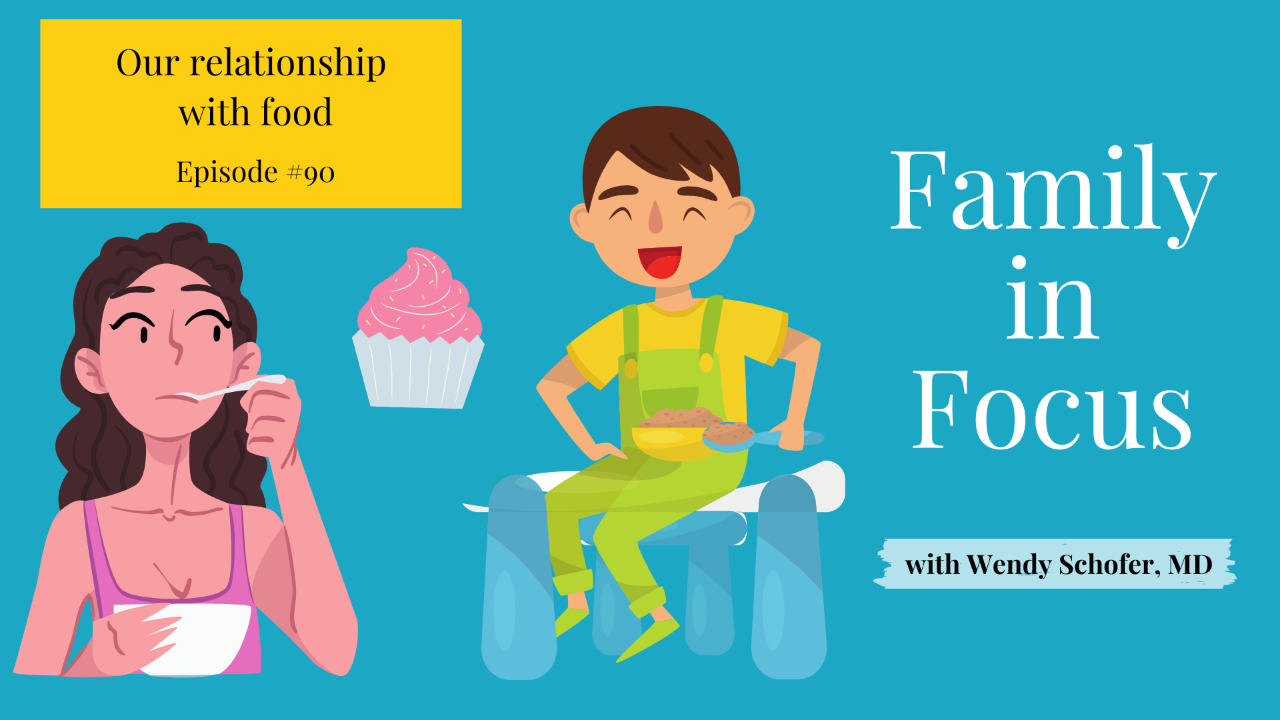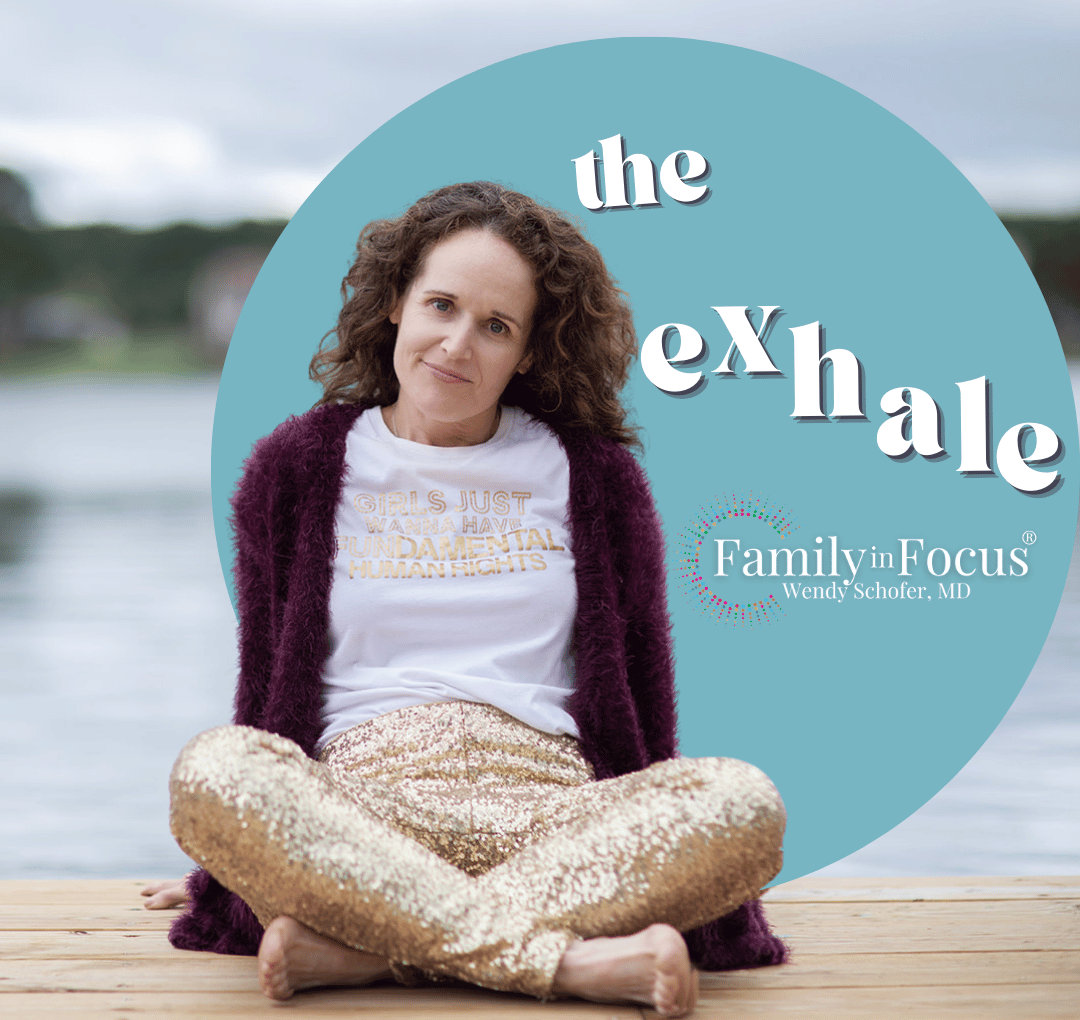
We have started using a different language lately. Instead of talking about how our bodies and our kids' bodies need to change, we talk about wanting to change relationships with food.
((Screech))
What does that even mean?
How do you have a relationship with food, how does it change, and how is that different from changing the way that you eat?
Let's dive in.
First just consider 3 questions:
- What is a relationship?
- How do you describe your relationship with food?
- What about your kids' relationship with food?
The answers to these questions may shift a bit over our conversation.
What is a relationship?
I going to start by saying that I didn't learn any of this growing up, but it was always running in the background. You see, I learned that relationships were the give-and-take of 2 people, kind of like a conversation.
But that overlooks what happens when we can - and do - have relationships with an inanimate object (hello, food!), a critter (ah, my beloved Sugar, Bear, Max...), ourselves and even those who are no longer with us.
I refer you back to episode #25, Gratitude for the Pain. It's where I talk about the relationship that I had - and still have - with my Bonus Dad, even after his death.
Relationships aren't 2-sided. They are individually created by each and every one of us. Because:
Relationships are our thoughts.
Relationships are our thoughts about the other person, our thoughts about food, about our pets, about ourselves.
When we have loving thoughts, we have a loving relationship.
When we have unhealthy thoughts... we have an unhealthy relationship.
OK, that's where it gets slippery really fast.
What is your relationship with food?
So often, I hear from parents that their relationship with food is unhealthy. That is just the beginning. We have to understand what is "unhealthy". And according to whom?
We use words like healthy and unhealthy, good and bad like we all know and agree upon what that means.
The thing is, we don't.
As soon as we have thoughts about eating unhealthy, what happens? Oftentimes it's feelings of guilt, regret, shame...
The thing is that it's not the food (say, the cupcake or the pizza) that is unhealthy here. It's the story we are telling about it. It's creating all this icky feeling.
Now this isn't time to surgically go in and "remove" the icky feeling. It's time to UNDERSTAND where it's coming from.
This is the part that is grossly unexplored in the typical weight-management, healthy-habits and family health arenas. We trying to go in and change the action - the way that we are eating.
But, we aren't understanding all the things that happen upstream of eating. In the language of cognitive-behavioral techniques, "upstream" means understanding the thought that is producing the feeling. The feeling is what leads us to take the action.
The action (eating) means really nothing if we don't understand why we are doing it.
What is your kids' relationship with food?
"My kid eats all the time. He's always hungry."
That, my friend, is not their relationship with food.
We don't know anything about our kids' relationship to be honest. Only they do (and it is not time to start asking all the deep-dark-what-were-you-thinking questions).
If our actions are driven by a feeling, here is our opportunity as parents:
GET CURIOUS.
What could be going on here?
I see my child is eating all the time. Define what that means - what is all of the time?
Then, with a spirit of curiosity (and non-judgement), ask yourself, what could possibly be happening? Look for patterns.
Could your child be...
- Hungry
- Bored
- Distracted
- Tired
- Stressed
- Lonely
- Eating foods that make them hungry quite quickly afterwards
- What else is possible?
This list is by no means exhaustive. It's just a start.
The Why
The reason to look at relationships with food as thoughts is because we will otherwise overlook something tremendo-important:
If we simply look at actions and try to change them (I'm looking at you, weight management programs that just address portions, eating frequency and type without understanding the thought-feeling input to our eating), we are missing what's happening in the background.
And this is what didn't work in my own home: When I came in like a wrecking ball and tried to change my kids' eating without understanding, it backfired.
No one likes to be told what to do. When we try to control our kids, they very normally push-back, sneak food and we are messing up our relationship with our kids.
Relationships are not to be controlled. They are to be understood.
This is the start. There is so much more we will be diving in on relationships. And as you may already be seeing, this applies to relationships with our body (hello, body image is the thoughts that we have about our body = the relationship!), family, school, work, etc. The work we do here ripples to other areas.
I hear you loud and clear:
But how do we just change thoughts to change relationships? How do we create those healthy thoughts?
First things first:
We have to understand the connection first. Understand how it is so freaking normal that we just want to FIX it all. AND, this is the real exercise of parenting: it starts with us. We get to be the change we want to see for our family. That means practicing understanding your relationship with food, how it impacts how you feel, the grief you're giving yourself about your eating habits and your child's eating habits.
Let's continue the conversation. There is no "well, that's solved" with relationships. It's building onwards, practicing and evolving.
------------------------------
Calling all Healthcare Professionals: I'm so glad you're here, to benefit yourself, your family, and your patients. The CE experience for this Podcast is powered by CMEfy - click here to reflect and earn credits: https://earnc.me/yrHnup
Family in Focus coaching now. Current offerings available here.
Check out the Family in Focus with Wendy Schofer, MD Podcast!
Stay connected with news and updates!
Join our mailing list to receive the latest news and updates from our team.
Don't worry, your information will not be shared.
We hate SPAM. We will never sell your information, for any reason.


